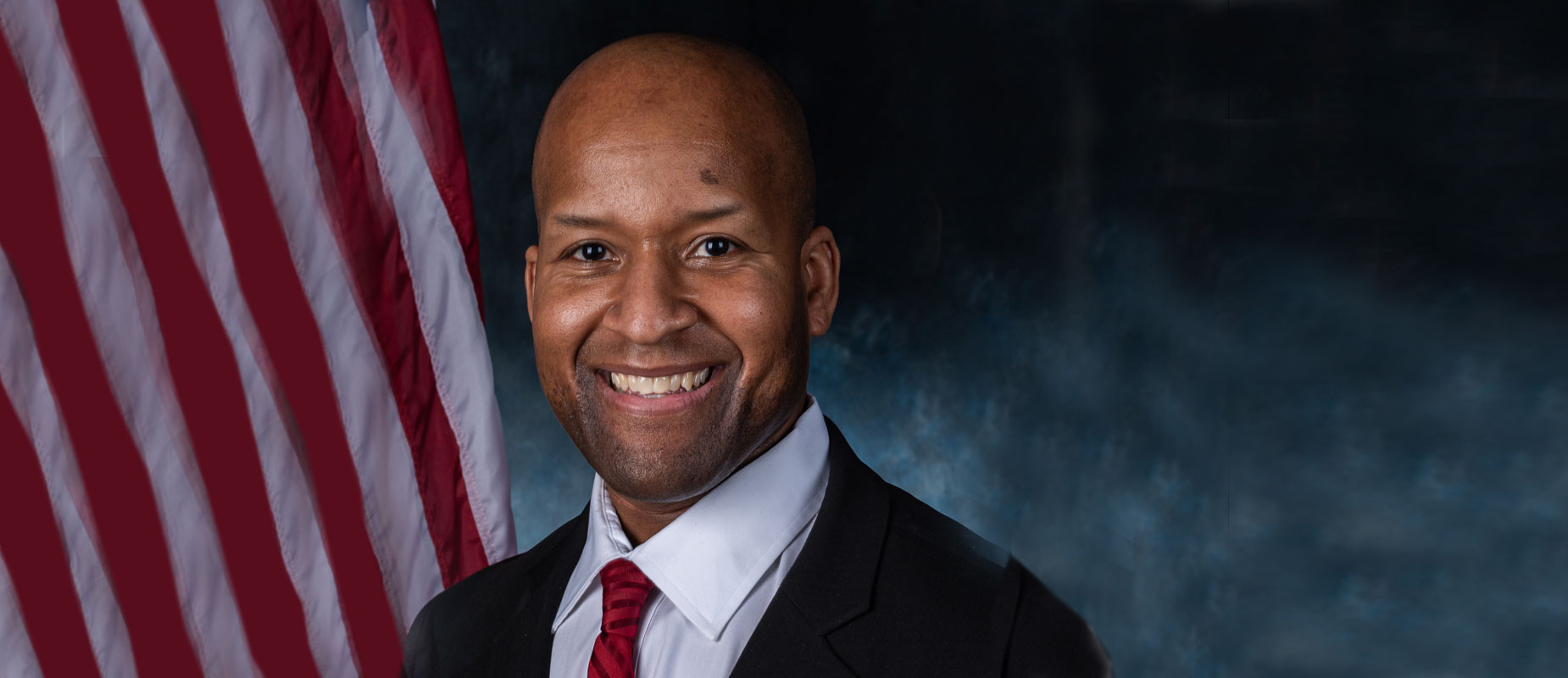
As a kid, Aaron Smith ’19 loved watching crime shows on television and he always envisioned himself in law enforcement when he grew up. “I knew it was my calling,” says Smith. “I knew that if the opportunity was ever afforded to me to be a law enforcement officer, I was going to assume my duties with the utmost pride while upholding the oath I was going to take to serve and protect the citizens of the community.” Now, as Assistant Chief Deputy U.S. Marshal, he knows that the reality of his job is far from what Hollywood depicts—“my job is nothing like The Fugitive or U.S. Marshals”—but he still loves the profession. Working as a federal law enforcement officer with the U.S. Marshals Service requires that Smith know how to communicate clearly, think critically, and problem solve quickly. Marshals always have to be professional, alert, and even-tempered, even in the face of danger, uncertainty, or turmoil. We connected with Smith to learn more about his career with the U.S. Marshals Service.
What does a typical day on the job look like for you?
A typical day on the job consists of me overseeing the day-to-day operations in the District of Columbia. Whether Deputy U.S. Marshals are taking prisoners to and from court, transporting prisoners to and from various jail facilities, providing judicial security, working investigative operations, serving court orders, or any of the other duties that fall within the mission of the U.S. Marshals Service, it is my job to ensure that these duties are carried out as safely as possible and without any unnecessary delay. Additionally, throughout the day, I am constantly answering inquiries from the judiciary and other U.S. Marshals Service protectees who fall under my responsibility. I can honestly say that every day there is something new—which I do not mind at all. The job keeps me on my toes.
Describe your best day on the job. What happened that day to make you proud, happy, or encouraged?
I would say that there are two separate instances that I would consider a tie for being my best day on the job. First, as Senior Inspector in 2015, I had the distinct honor of being named “employee of the year” for the District of Columbia. I remember that day like it was yesterday. During an all-hands meeting, I was called to the front of the room and was presented the award for the District of Columbia by the Chief Deputy U.S. Marshal. To this very day, that award hangs proudly in my office. The second day would have to be in 2019, when I was officially promoted to the rank of Assistant Chief Deputy U.S. Marshal. I consider the District of Columbia my home away from home. Having started out in the District of Columbia as a Deputy U.S. Marshal, and having risen through the ranks in one district, it was both a proud and happy day for me.
What’s the most challenging aspect of your job?
The job comes with an enormous amount of responsibility, and it can be a challenge to find a good work-life balance. The phone does not stop ringing and the email requests just keep coming. If I take a day off, I am not really and truly “off”—unless I take a vacation out of the country. That essentially forces me to leave my work phone at home, unplug from the job, and get some well-needed rest. But I wouldn’t change a thing about my job because I enjoy the work.
What’s the most rewarding aspect of your job? Why is this so impactful?
The most rewarding aspect of my job is being able to pass along my knowledge and expertise about the U.S. Marshals Service and the District of Columbia to many of the new Deputy U.S. Marshals after they’ve successfully graduated from the training academy. I enjoy teaching and, in my opinion, no one should ever stop learning. It’s a two-way street. They learn from me and I learn from teaching them. As I moved up the ranks, so many Deputy U.S. Marshals graciously took the time to show me what the job truly entails. In return, it’s my duty to pass on my knowledge and expertise to the next generation.
How has your John Jay education enhanced your career in law enforcement?
My John Jay education has enhanced my career in law enforcement tremendously. I was fortunate enough to have some of the very best professors, who had distinguished careers as law enforcement officers, breakdown different theories, practices, and histories that changed my perspective and understanding of the profession. When John Jay College professors are teaching, they are teaching not only from textbooks, they are also teaching from their experiences as law enforcement officers. Throughout my career, I’ve been able to apply what I learned at John Jay. Everything that I was taught at John Jay became additional tools for my professional toolbox.
What advice would you give to future law enforcement officers, firefighters, or emergency medical professionals?
Whether someone aspires to become a law enforcement officer at the local, state, or federal level, I would advise them to please make sure that being a law enforcement officer is what they truly want to do. Being a law enforcement officer can be extremely stressful and very taxing on the body. In today’s current climate, law enforcement officers have to be more willing than ever to positively and actively engage the communities that they serve. We all have to help bridge that gap between the communities and law enforcement. This is one of the main reasons why I am a huge advocate of community policing. There is no question that there is still work to be done, however, with future law enforcement officers and current law enforcement officers committed to serving their communities with passion and integrity, I remain optimistic that the future looks bright. Being able to communicate effectively and professionally is essential. I would tell future law enforcement officers that being a law enforcement officer is more than a job, it is a career that will be extremely rewarding, but you have to stay humble, professional, and respectful.



